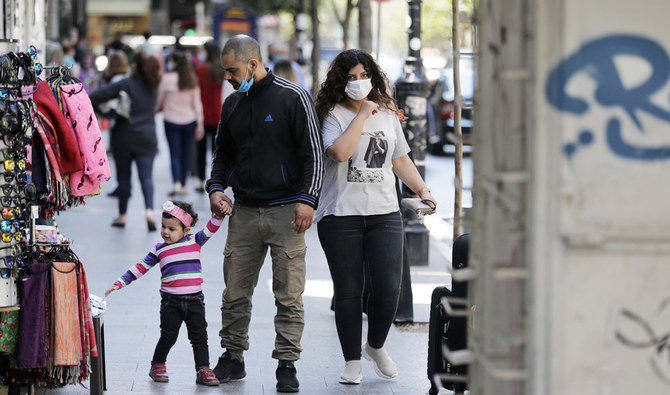BEIRUT: The Ministry of Education will reopen schools for integrated education starting on Monday.
This comes after two weeks of closure and amid objections from civil bodies and commentators working in the public field.
Hilda El-Khoury, director of the counseling and guidance department at the Ministry of Education, said: “Returning to education through the combined method will be within the preventive measures that were previously approved.”
However, the Civil Emergency Authority in Lebanon said: “The decision will lead to a health crisis affecting the most vulnerable people, namely children and underage students, especially with the number of cases not declining since before the closure, and with the noticeable increase in the daily number of deaths.”
The Ministerial Committee for Combating the Coronavirus has meanwhile maintained its decision to impose a partial curfew in Lebanon but amended its implementation hours. Instead of starting at 5:00 p.m. each evening, the curfew now begins at 11 p.m. and ends at 5 a.m., provided that restaurants, cafes and malls close at 10:00 pm.
During its meeting on Sunday, the committee decided to restore vehicle movement on roads but maintained the suspension of social activities, cinemas and nightclubs.
Health minister for Lebanon’s caretaker government, Hamad Hassan, said that the adoption of the strategy, permitting odd/even license plate vehicles on the roads on alternate days, had doubled the number of COVID-19 cases due to people’s reliance on shared transportation.
He said: “The rate of commitment to complete closure in all Lebanese territories has reached 70 percent over the past two weeks.”
Hassan said that the aim of the measures was to alleviate the pressure on the medical and nursing staff.
“The required medical measures, completed in terms of expanding the hospitals’ capacity to accommodate the COVID-19 cases, have been completed,” he said.
The death toll in Lebanon has reached 1,000, while the total number of confirmed cases has jumped to more than 126,000 cases, at a rate of more than 1,200 cases per day during the past two weeks.
Abdul Rahman Al-Bizri, an infectious disease specialist and member of the emergency committee on coronavirus, regretted the lack of plans for the period following the closure due to a lack of coordination on COVID-19 between state departments.
He said that this had kept the country in a state of confusion and chaos while citizens paid a high price in light of the difficult economic and living conditions.
Al-Bizri said: “The repeated closures are unsuccessful, and one of their consequences is the decline in economic activity, the life cycle, and the living conditions.”
Meanwhile, video footage of Health Minister Hamad Hassan went viral on Saturday. It showed him cutting a cake for the birthday of Hezbollah Secretary-General Hassan Nasrallah in the open market in Baalbek city.
The video was circulated on social media and caused a scandal following a similar episode in which the same minister was involved months ago.
The people of his town in the Bekaa met him during the peak of the spread of coronavirus, and he danced among them carrying a sword. Some people carried him on their shoulders and other social distancing measures were also not observed.
The Syndicate of Owners of Restaurants, Cafes, Night-Clubs and Pastries has called in the past few days for the sector to reopen to save what is left of it.
In a statement issued on the eve of the ministerial committees’ meeting, the syndicate called on the caretaker prime minister, Hassan Diab, to “adopt a health-economic approach for the benefit of the rest of the sector.”
The syndicate added: “The sector has fully fulfilled its duties with regard to the preventive measures.
“We have also advanced a new approach related to the capacity of institutions, whereby chairs and tables are reallocated to accommodate only 50 percent of the original capacity, guaranteeing that no overcrowding will occur.
“We insist on adopting this as a new measure, and we discussed it with the minister of interior, and the sector will reopen its doors on Monday morning while remaining committed to all procedures and laws.”
Bechara Asmar, the head of the General Labor Union, called for the reopening of the country “because it secures a return to the economic cycle during the month of the holidays, protects workers, employees and daily-paid workers in all private, public, and official sectors, and preserves their livelihood at a time when they risk having their wages reduced, starving to death or dying of the coronavirus.”


























